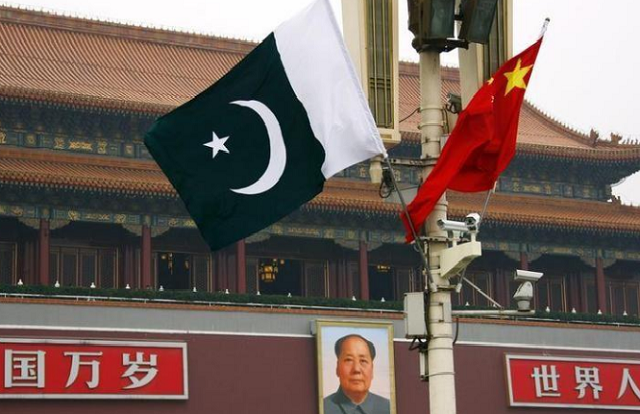
The two-day China-Pakistan Economic Corridor (CPEC) Cultural Caravan Festival opened at the Pakistan National Council of the Arts (PNCA) amidst thrilling beats of the dhol — traditional drum, coupled with a host of events such as fashion shows, photo exhibitions, documentary screenings and cultural performances from Pakistan and China.
Chinese Ambassador Yao Jing and the Minister of State for Information Marriyam Aurangzeb kicked off the event in a grand ceremony.
Jing said the success of CPEC depends on the interaction and collaboration between people from both countries. This cultural collaboration, he hoped, would enhance ties for a lasting bilateral economic and political bond between Beijing and Islamabad.
Aurangzeb emphasised the importance of the collaboration, stating that CPEC is not just about the performance of the incumbent regime, but it is paving the way for the future of the next generation.
The successful implementation of the CPEC project would bring prosperity to the nation while also enhancing the regional integrity, the information minister said.
The festival features an exhibition of paintings, drawings and artwork produced by Chinese and Pakistani artists who had participated in the CPEC cultural caravan — travelling to each other’s countries to glean their cultures.
Furthermore, a series of books, research reports, and photomontages by filmmakers were also part of the caravan to document and promote the culture and art of the diverse communities living along the historic Silk and CPEC routes.
A documentary showcasing the work of professional photographers and artists of Pakistan and China was also screened.
Panel discussions and cultural stalls showcasing regional culture and food were also organised in the festival.
Regional handicrafts included embroidered dresses, ceramics, wall hangings, vases, handicrafts carpets were displayed. Chinese and Pakistani songs were presented by Chinese and Pakistani singers.
Filmmakers call for greater support
At the focus group, television film and theatre artists of all genres debated the future of Pakistan’s film industry and the role they can play in Pakistan’s cultural progression.
Veteran actor Mustafa Qureshi, while discussing the challenges faced by the local film industry, said that it was time that they change the name of the industry.
Moreover, he stressed the need to ensure universal clearance of films, so that if a movie has been cleared from the censor board in one province, should be cleared to play in all other provinces.
Senior actor and chairman of the Rafi Peer Theatre Workshop Usman Peerzada was critical of the composition of film review panels at censor boards. He was of the view that censor boards should not allow “irrelevant guests” while the film is being censored.
Veteran film producer and director Syed implored cinema owners to provide equal screen time to Pakistani, Indian and English movies. The only exception can be for new Indian movies.
Actor Rehan Sheikh echoed Noor, demanding a law to safeguard local films.
Hameed Sheikh, who has emerged as a tour de force in recent Pakistani cinema productions after spending years in silver screen wilderness, said that members of the film industry had very simple demands: financial support for their films.
Filmmaker Mumtaz Hussain highlighted the need for building a film archive to preserve national classics.
“Even film posters should be preserved since they are also a form of art,” he suggested.
Senior television actor Firdous Jamal took a veiled swipe at modern Pakistan films, suggesting that we should showcase our “cultural soul” in our cinema. To do this, he said all those associated with films must unite and formulate a policy so that the entire industry moves in one direction.
It was also demanded that Pakistani films should be dubbed in Chinese and Arabic languages to be released in those countries.
Published in The Express Tribune, February 26th, 2018.



1730959638-0/trump-(19)1730959638-0-165x106.webp)

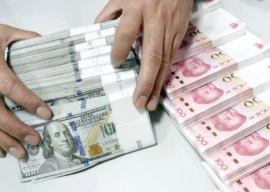
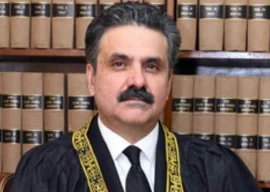
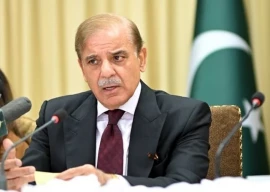


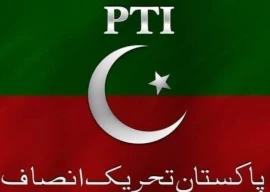






COMMENTS
Comments are moderated and generally will be posted if they are on-topic and not abusive.
For more information, please see our Comments FAQ